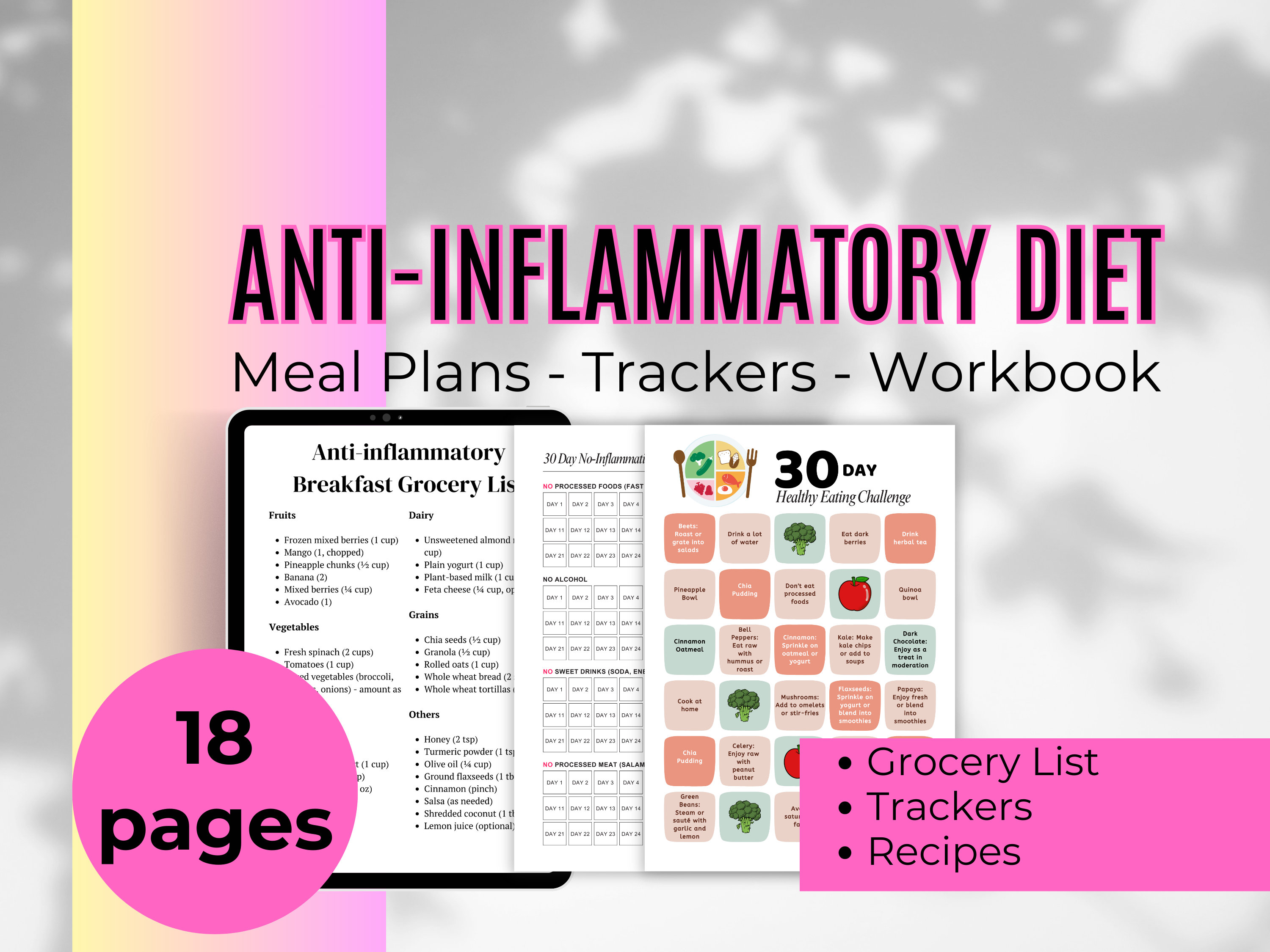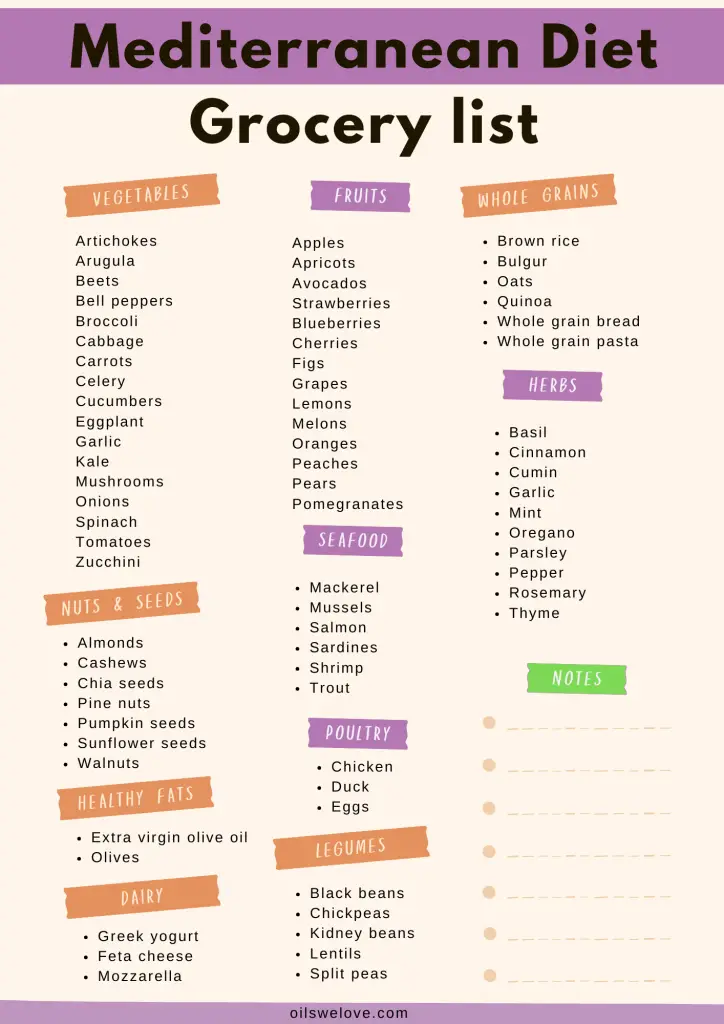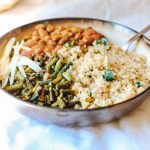The Mediterranean diet has gained widespread popularity for its delicious flavors and numerous health benefits. Emphasizing a rich variety of fruits, vegetables, whole grains, healthy fats, and moderate protein intake, this way of eating offers a holistic approach to nutrition and well-being. By focusing on fresh, seasonal ingredients and traditional cooking methods, the Mediterranean diet not only nourishes the body but also delights the taste buds. Let’s delve deeper into the Mediterranean Diet Food List to discover the key components that make this dietary pattern a favorite among health-conscious individuals.
The Good Stuff: What to Fill Your Cart With
Fruits & Veggies:
The Mediterranean diet truly shines when it comes to the abundance and variety of fruits and vegetables it promotes. These colorful and nutrient-packed foods are not only delicious but also essential for a well-rounded diet. Whether you’re reaching for dark leafy greens such as spinach and kale or enjoying a mix of seasonal fruits like berries, citrus fruits, and melons, your options are plentiful. Remember, frozen and canned fruits and vegetables can be just as nutritious and convenient, especially when fresh produce is not readily available. By incorporating a rainbow of fruits and veggies into your meals, you can ensure a diverse range of vitamins, minerals, and antioxidants to support your overall health.
Whole Grains:
Whole grains are a fundamental part of the Mediterranean diet, offering a wealth of fiber and nutrients that refined grains lack. When selecting whole grains for your pantry, consider options like whole-grain bread, pasta, brown rice, quinoa, and barley. These choices not only provide a satisfying texture to your dishes but also offer a sustained release of energy to keep you feeling full and satisfied throughout the day. By making whole grains a staple in your diet, you can support digestive health, maintain steady blood sugar levels, and enhance your overall well-being.

- 2-Week anti-inflammatory meal plan.
- 45 Foods that Cause Inflammation
- 31 Things to Avoid on Food Labels
- Grocery Lists. Challenges. Symptoms Tracker
Healthy Fats:
Healthy fats are a key component of the Mediterranean diet, with olive oil reigning supreme as a source of beneficial fats. Opt for extra virgin olive oil to maximize both flavor and health benefits in your cooking and meal preparation. Whether you’re using it for salad dressings, sautéing vegetables, or dipping bread, olive oil adds a distinctive taste and richness to your dishes. Additionally, incorporate other sources of healthy fats such as nuts, seeds, and avocado into your diet for added nutrients and flavor. These foods can be enjoyed as snacks, toppings, or ingredients in recipes to boost both taste and nutritional value.

Download as PDF: Mediterranean Diet Grocery list
Protein Powerhouses:
Protein is vital for muscle health and overall well-being, and the Mediterranean diet offers a variety of lean protein sources to choose from. Fish and seafood, particularly oily fish like salmon and tuna, are rich in omega-3 fatty acids and are highly recommended. Poultry, eggs, and plant-based proteins like beans and lentils are also excellent choices to diversify your protein intake. These protein sources not only help you feel full and satisfied but also provide essential nutrients to support your body’s functions. By incorporating a mix of protein options into your meals, you can ensure a balanced and nutritious diet.
Bonus: Herbs and Spices:
Enhance the flavors and health benefits of your Mediterranean-inspired dishes by incorporating a variety of herbs and spices into your cooking. Herbs like oregano and rosemary are rich in antioxidants, while spices such as turmeric and cinnamon offer metabolism-boosting properties. These flavorful additions not only elevate the taste of your meals but also contribute to their nutritional value. Next time you’re at the store, consider stocking up on a range of herbs and spices to add depth and complexity to your dishes while reaping their health benefits.
Moderation is Key
While the Mediterranean diet emphasizes wholesome and nutrient-dense foods, it’s important to note that it’s not about strict restrictions. Instead, it encourages a balanced approach to eating that includes enjoying a variety of foods in moderation. This means that while red meat, processed foods, and added sugars can still have a place in your diet, they should be consumed sparingly.
By focusing on adding the “good stuff” like fruits, vegetables, whole grains, healthy fats, and lean proteins that were highlighted earlier, you can naturally crowd out less nutritious options without feeling deprived. This approach allows you to savor your favorite indulgences occasionally while prioritizing foods that nourish your body and support your overall well-being.
Remember, the key to success with the Mediterranean diet lies in finding a sustainable balance that works for you. By incorporating a wide array of nutrient-rich foods into your meals and snacks, you can create a foundation of healthful eating habits that can be enjoyed for the long term. So, embrace the concept of moderation, savor your meals mindfully, and relish the delicious flavors and benefits that the Mediterranean diet has to offer.
By embracing the Mediterranean diet food list, you can easily enhance your well-being with nutrient-rich options. The variety of foods available allows for a flexible and enjoyable approach to eating. Explore the flavors of Mediterranean cuisine and adjust the diet to suit your tastes. Remember, moderation and balance are key to long-term success. Incorporating the Mediterranean diet grocery list into your meals can be a delicious journey towards a healthier lifestyle. Start savoring the benefits of this wholesome way of eating today.





